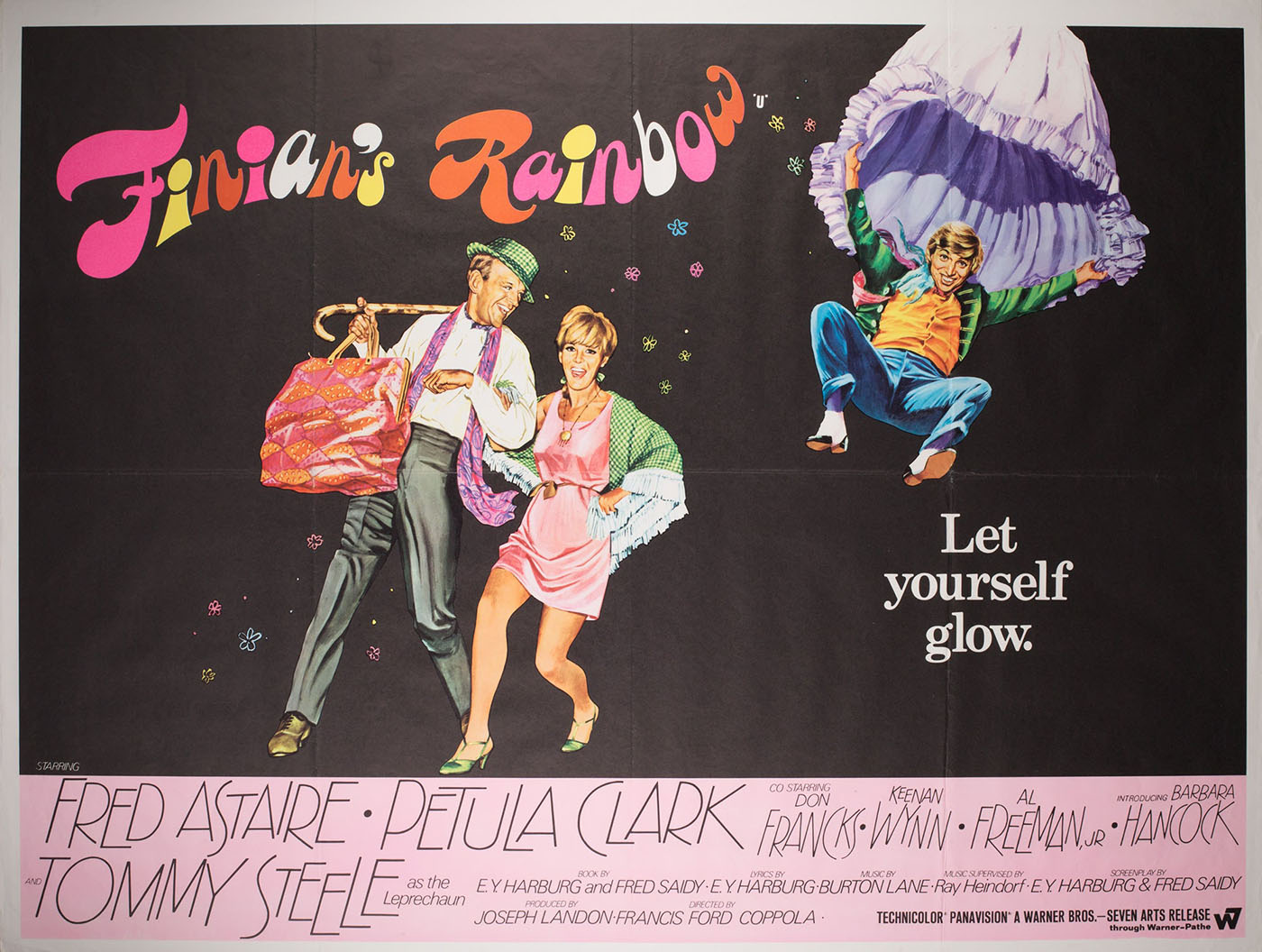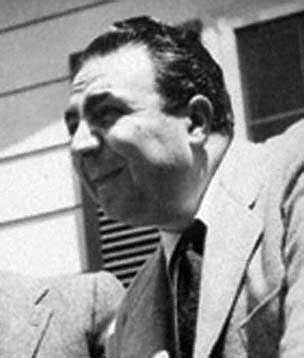
Humorist Fred Saidy (1907-1982) born in Los Angeles of Lebanese immigrant parents, wrote for movies and Broadway, most notably the musical Finian’s Rainbow and the pictures I Dood It directed by Vincente Minnelli and Meet the People, directed by Charles Reisner. Those FOB newcomers could be funny. He often told stories about them for hours, including skilled mimicry, keeping a house full of guests in stitches. When “angels” gathered to consider backing a new play, he would read it aloud, voicing all the roles. “Let ‘Em Eat Bread” will be familiar to Lebanese-American old timers. It is from a magazine of September 1939.
Fred M. Saidy
I have just returned in weary triumph from Mrs. Nazralla’s candy shop on Hollywood Boulevard, where by dint of careful diplomacy I succeeded in buying five pounds of baklava. Baklava is not what it sounds like, the name of a Central European village where a war broke out at one time or other, but a Syrian pastry which — if it could be distributed to the armies of the world — would probably end war altogether. Unfortunately, the total annual output is hardly enough to sustain a troop of healthy Boy Scouts, let alone an army, and a contributing factor to this perennial scarcity is the oriental psychology of merchandising. The quality involved, of which Mrs. Nazralla is a prime exponent, may be best described as a determined selling— resistance on the part of the vendor.
Mrs. Nazralla is a roly-poly, middle aged woman with glittering black eyes and shiny black hair parted in a zigzag and pulled back over the ears into a chignon. Dominating her face is a Levantine nose of which the convex curve resembles the beak of a parrot.You probably infer, between the lines, that she is not beautiful, but the point is not important. Beauty is a dime a barrel in Hollywood, but who owns the talent to confect butter, dough, sugar syrup and pistachio nuts into the apocryphal reality which is baklava? Only Mrs. Nazralla and a few solitary geniuses like her, and when they vanish from the earth, their magic goes with them. I know it is magic because I have seen hardened gourmets, upon first sampling the stuff, burst into little twitters of delight. Magic, also because the method by which Mrs. Nazralla piles twenty layers of flaky crust into a slab a half-inch thick is just as obscure, to me, as the workings of a zipper.

I am no fledgling aficionado myself — if I’ve eaten one piece, I’ve eaten two — and when Mrs. Nazralla greeted me warmly from behind her showcase of homemade sweetmeats, I quickly returned the greeting and asked for five pounds of baklava, to be put up in two boxes. I hoped to take her by surprise, before we came involved in a long discussion of my family’s health, and be out of the place in ten minutes, which is equivalent to shooting a birdie. But the brusqueness of my approach stunned her. Rallying her forces, she launched into negotiations. “Five pounds,” she repeated. “You want that much. You sure?”
I wasn’t sure — the amount was a stab in the dark and could as well have been seven pounds or six — but in the moment of my hesitation, my doom was sealed. “Well,” I temporized, “I just wanted to give a couple of presents to some friends —”
She was listening eagerly, her eyebrows lifted in concentration. “Big families?” she said. “Children?”
“No,” I replied, “no children…but these people are crazy about your pastries. I guess they could actually use about fifty pounds.” I smiled weakly to indicate a witticism.
“I see,” she said thoughtfully. “Well, you know I make it fresh every day, my baklava, you don’t have to take just as much you want.”
I thought I knew what she meant, but to press for an explanation might result in my getting one; I didn’t feel conscientiously, that I could spare the time. “Any amount you think is ok, “ I said. “Just put it up in two boxes.”
Her forehead was still wrinkled in puzzlement. Then quickly the wrinkles cleared away; she had come to a decision of some sort. “Wait,” she said. “I show you a tray. I just bake it this morning.”
She scurried through a doorway into the small kitchen, and shortly bustled back with an aluminum baking pan full of the pastry neatly criss-crossed into diamond-shaped pieces. “This run four and a half, five pound,” she said. “It look good?”
“It looks beautiful.” I topped her. “Just divide it into —”
“Maybe you like it not brown so much?” she continued.
“I like it anyway at all, Mrs. Nazralla,” I assured her.
She glowed with satisfaction. “Fine. I give you some to eat.”
Before I could stop her, she had dished up a portion and set it on the counter. I dutifully munched on it and announced it delicious. This was, more or less, a mistake.
“Maybe you like to try it my candy,” she pursued, eagerly. “All homemade, I make it right here, pure butter.”
It was no use pointing out that that I had sampled her candy and her generosity on numerous previous occasions; she took my demurrer for oriental bashfulness. Nimbly she reached into the case and produced some fudge, a couple of caramels and a slice of Brazilian nut-roll, which she heaped on the dish before me. “Really,” I pleaded, “I don’t think I can eat another thing — I had a heavy breakfast just before…”
She dismissed the protestation with a motherly wave of the hand. “Healthy young man like you? You could eat all day, I bet you!” She winked archly, making it clear she had penetrated my transparent excuse. With an effort I nibbled off the corner of a caramel, prudently suppressing any comment for fear Mrs. Nazralla might maneuver herself into a net loss on the transaction. Any attempt to compensate her for the refreshments, I knew, would be construed as an insult, pure and simple.
After I had turned down her offer of hot coffee, just made fresh, Mrs. Nazralla lapsed into momentary silence as she laid out two boxes, lined them with wax paper, and prepared to transfer the pastries from the pan. We were making progress, finally. She was about to insert a knife around the edges, when she caught herself short. “I forgot to show you other kind,” she announced, with an air of self-reproach. “Some people like not so brown.” She started for the kitchen.
I knew it was useless to say anything more. If my friends had to have baklava — I personally, would settle for a plain vanilla topped coffee cake, without raisins — this was the only way to get it in greater Los Angeles.
She was back now, bearing another panful, the glossy crust a shade more blondish than the first. “You like it better?” she asked eagerly.
“I like them both,” I said. “What’s the difference?”
“Well, not really much,” she replied. “This one” — pointing to the second — “maybe little bit sweeter. You like to taste?”
“No thank you!” I assured her. “Give me whichever you like.”
The wheels of activity again came to a standstill. She could not consummate the deal on this unprecise basis. Her hand, the knife into it, fell to her side and her brows went up again. “Is not what I like,” she said, like a patient schoolteacher addressing a backward child. “Is what you like.”
“Alright,” I decided with brisk finality, “I’ll take the first pan — just pack it in two boxes.”
As I had only a little cash with me, I would have to give Mrs. Nazralla a check — and I dreaded the prospect. She would, of course, be completely gracious about accepting it, and this in fact was the whole trouble. I feared another delay of five minutes while she convinced me it was quite all right, during which time she probably would ply me with homemade fondant and pralines.
“May I give you a check,” I inquired boldly.
“Mr. Saidy!” She placed her hands on her hips and wagged her head roguishly. “Did I ask you for money?”
She was still shaking her head when she tied the last blue ribbon around each box. Packing the pastries in boxes was something of an irregularity, as I usually took the whole pan with me, and returned it empty later, but I was sure Mrs. Nazralla had been pleased with the extra trouble.
“This the right amount — “$3.75?” I asked, handing over the check. She paid no attention to the check and even ignored the question. “There’s sales tax, isn’t there?” I continued reaching into my pocket for some more coins.
“That’s all right,” said Mrs. Nazralla, with a quick blinking of the eyes and a confidential nod, as though she were a bootlegger delivering a case of contraband gin. I didn’t know exactly what was all right; to make an issue of the sales tax might continue our little tete-a-tete well on into the night. The boxes were under my arm by now and I was poised for a quick getaway.
“You didn’t have to give me a check,” was Mrs. Nazralla’s parting word. “You could pay me when you bring me the pan back.”
She was, of course, well aware of the fact that I wasn’t taking any pan with me this time. She was also aware that I was aware, but it would have been gauche and unreasonable on my part to point out the obvious flaw in her oriental logic. Our eyes met for a moment in wordless acknowledgment of the situation; then with a curt occidental “Thank you,” I turned and left.



